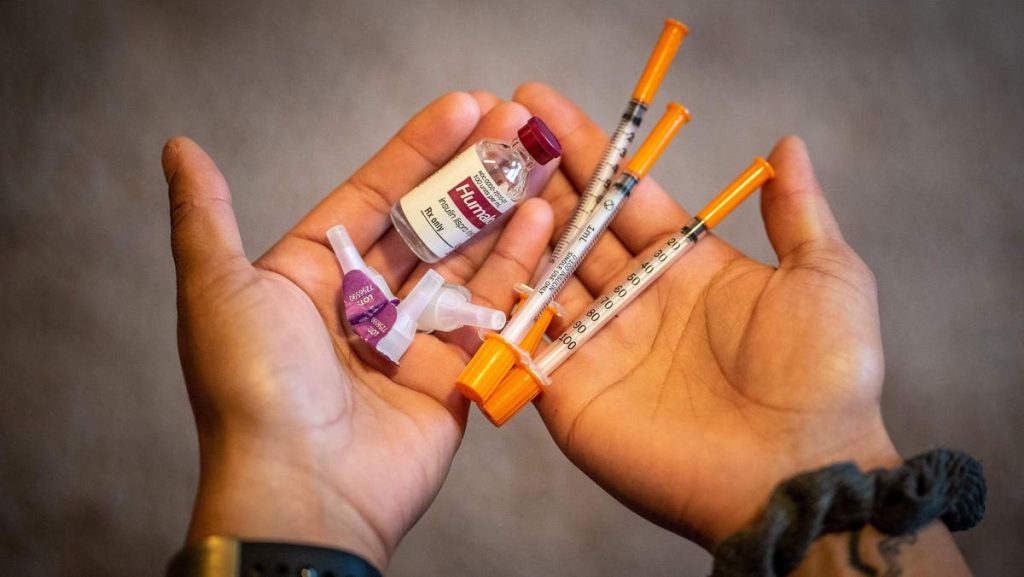Topline
New studies that explore the link between Covid and diabetes add more evidence suggesting a Covid infection may increase the risk of developing diabetes, even acting as a “disease accelerator.”
Key Facts
Two studies published Thursday in the journal The Endocrine Society found a correlation between Covid and adolescent and gestational diabetes.
The first study discovered an increase in type 2 diabetes among youth (ages zero to 18) in 2020 and 2021 due to factors caused by the Covid pandemic, including more frequent snacking, less physical activity due to school shutdowns and eating more unhealthy foods, which led to weight gain.
According to the second study, the pandemic indirectly contributed to increased cases of gestational diabetes and gestational weight gain due to several different factors, like lifestyle changes.
The Centers for Disease Control and Prevention reports that every year in the U.S., 2% to 10% of all pregnancies are negatively impacted by gestational diabetes. The CDC reports that 283,000 children and adolescents younger than 20 years of age have diabetes—this includes 244,000 with type 1 diabetes.
Key Background
Although lifestyle changes due to the Covid pandemic played a part in increased cases of diabetes, evidence suggests that the actual Covid infection itself may increase diabetes risk. A 2022 study published in The Lancet Diabetes & Endocrinology suggests that after the first 30 days of infection, patients who contracted Covid had a higher risk of developing diabetes than those who didn’t. The study also recommended adding diabetes as a possible result of long Covid—health problems that persist after contracting Covid, like respiratory issues and neurological problems. A February report published in JAMA Network Open found a correlation between Covid infection and type 2 diabetes among the vaccinated and unvaccinated, though the risk was lower in vaccinated participants. The risk of type 2 diabetes after Covid exposure for vaccinated patients was 1.0%, with 51% occurring after Covid infection, versus 49% happening prior to infection. For unvaccinated patients, the risk of type 2 diabetes after Covid exposure was 2.7%, with 74% happening after Covid infection versus 26% happening prior to Covid exposure. A separate JAMA Network Open report from 2022 found 0.04% of the 285,000 children participants who had Covid developed type 1 diabetes over a six-month course after infection. Although this number is low, that’s 72% higher than the rate in kids who didn’t have a Covid infection.
Contra
Jina Rhou, the first author for the gestational diabetes paper, told Forbes because Covid infections among the study’s maternal participants remained low, the increased risk of gestational diabetes wasn’t “due to a direct effect of Covid-19 infection, but due to indirect effects of the pandemic.”
Crucial Quote
“Although we don’t yet know for certain, the trends and patterns that we see in the data suggest that Covid-19 infection could be acting in certain settings like a disease accelerator, amplifying risk for a diagnosis that individuals might have otherwise received later in life,” Susan Cheng, senior author of the February JAMA Network Open study, said. “So, it could be that instead of being diagnosed with diabetes by age 65, a person with preexisting risk for diabetes might—after a Covid-19 infection—be more likely to develop diabetes by age 45 or 55.”
Big Number
37.3 million. That’s how many Americans have diabetes, according to the CDC, about one in ten. However, about one in five who have it don’t know. More than one in three Americans—96 million—have prediabetes, though eight in ten who have it don’t know they have it.
Tangent
Since the Covid pandemic began in 2020, those with preexisting conditions were the most vulnerable to severe infection and hospitalization. Coincidentally, diabetes is considered a preexisting condition, and it’s recommended by the American Diabetes Association that diabetics take preventative measures to avoid infection. Early data from the CDC found that hospitalizations were 6 times higher and death 12 times higher in people who had underlying conditions, like diabetes. The CDC also found 39.7% of patients hospitalized with Covid also had diabetes. That percentage increased to 46.5% in patients between the ages of 50 and 64.
Covid’s No Longer A Public Health Emergency: Here’s How That May Affect You (Forbes)
What To Know About ‘Arcturus’: New Covid Variant Causing Pink Eye (Forbes)
Long Covid Linked To Heart Problems: Here Are The Symptoms – And Who’s At Risk (Forbes)
Read the full article here










